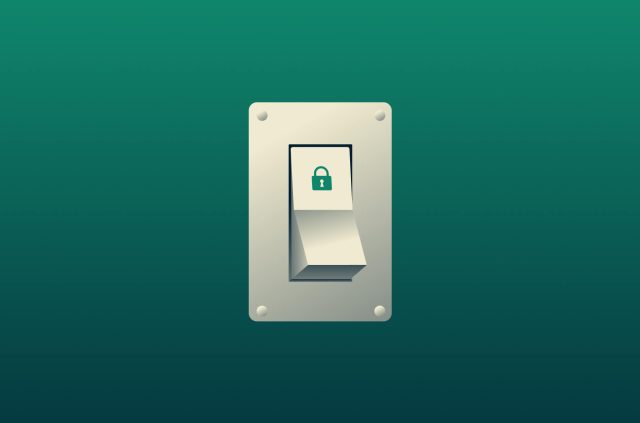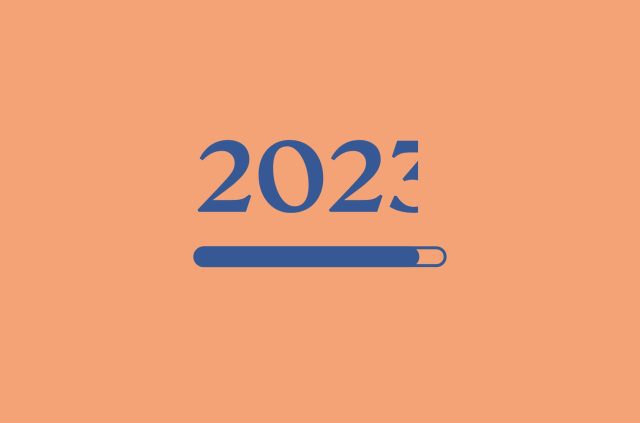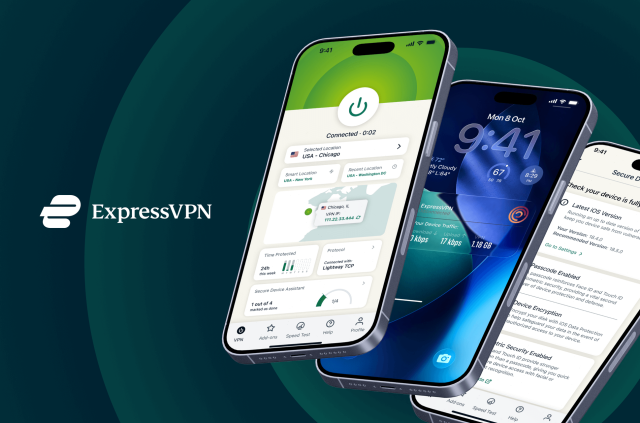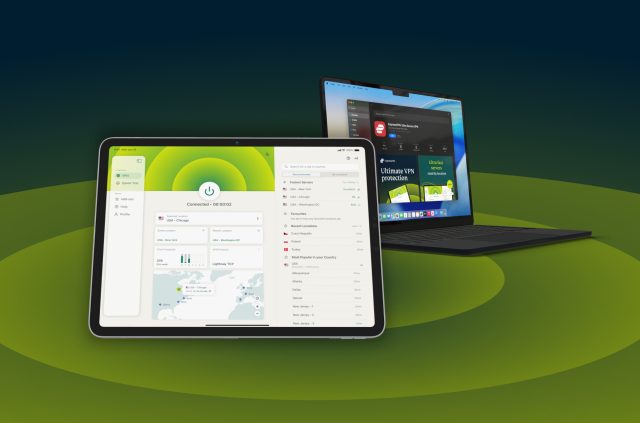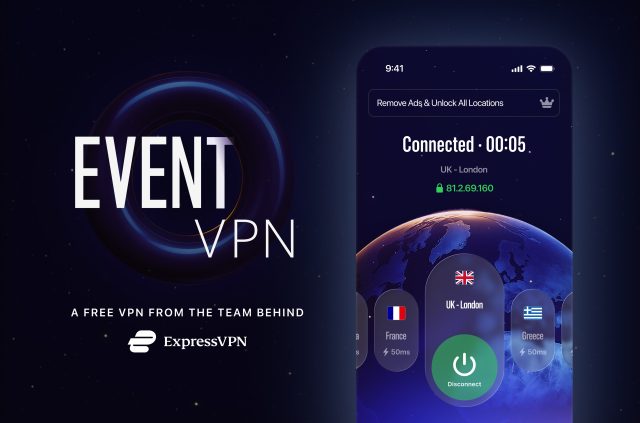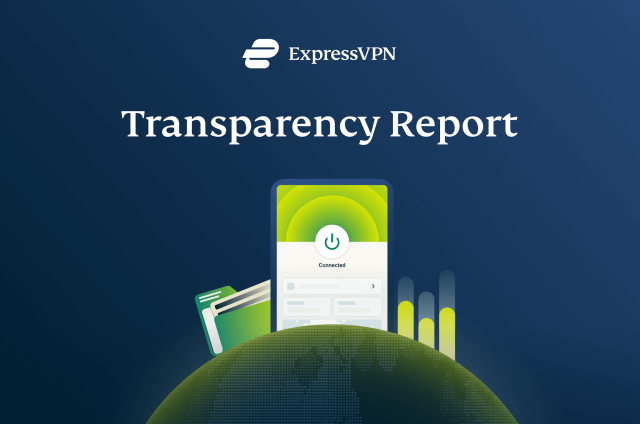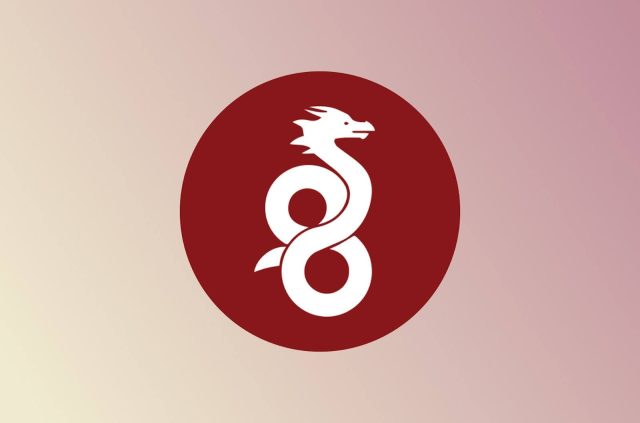Is Grammarly safe? Privacy, security, and data protection explained


Even if you’ve never used Grammarly, you’ve probably heard of it, thanks to its intensive use of ads on platforms like YouTube. The AI-powered grammar checker is widely used by professionals, students, and writers to improve their writing in real time.
But when a tool can read everything you type, the question of privacy naturally comes up. Is Grammarly safe? Can ity see your private messages, confidential emails, or sensitive documents? And if it does, what happens to that data?
We looked into Grammarly’s security and privacy measures to find out how it handles user data. The short answer: Grammarly is generally safe for everyday writing, but it’s not the best choice for highly sensitive information. Under certain circumstances, the service does store your text on its servers. Here’s what you need to know.
What is Grammarly and how does it work?
Grammarly, an online grammar checker, and proofreading tool, helps you identify spelling, punctuation, grammar, and sentence structure issues and offers real-time assistance to enhance clarity, cohesion, fluency, and vocabulary.
Powered by AI algorithms, Grammarly’s features, accessibility, user-friendliness, and accuracy have made it the go-to proofreading and writing tool for many—even seasoned content creators.
| Grammarly Features | Description |
| Great for | Checking emails, business communication, academic writing, creative writing, résumés and cover letters, social media posts, and English language learners |
| Languages | English only. However, it recognizes spelling, grammar, and punctuation differences in American, British, Canadian, Australian, and Indian English |
| English fluency | Beginner, intermediate, and advanced |
| Tools | Grammar and spelling check, writing style suggestions, vocabulary enhancement, plagiarism checker, sentence structure analysis, and virtual grammar handbook |
| AI techniques | Machine learning, deep learning, natural language processing |
| Browser extension | Chrome, Safari, Firefox, and Edge |
| Desktop app | Grammarly app for Windows and Mac |
| Mobile apps | Grammarly Keyboard for Android and iOS smartphones |
| Google Docs extension | Beta feature available for Google Chrome users (via Grammarly browser extension) |
| Account types | Free Account, Premium Account, Business Account |
| Cost | Premium: 30 USD per month; Business: 15 USD per month per user |
Understanding Grammarly’s privacy and security measures
Grammarly positions itself as a privacy-conscious tool, but using it still means sharing your writing with an external service. While its security measures help protect user data, the real concern is what Grammarly does with your text beyond just fixing grammar mistakes.
The company states that it encrypts data, limits internal access, and does not sell personal information. However, its privacy policy leaves room for ambiguity when it comes to how data is processed, stored, and shared with third parties.
Understanding Grammarly’s privacy measures is about recognizing the trade-offs of using an AI-powered, cloud-based writing assistant. The next sections break down what Grammarly stores, how it secures user data, and what you can do to limit exposure.
Does Grammarly collect and store your personal data?
When you use Grammarly, the tool actively analyzes everything you type to offer suggestions and corrections. But does this mean Grammarly is reading, storing, or potentially recording your words—including private or sensitive information?
Grammarly processes text in real time by transmitting it to its servers, where AI algorithms check for grammar mistakes, spelling errors, clarity issues, and overall writing improvements. This means your content passes through Grammarly’s systems before suggestions appear on your screen.
What Grammarly does and doesn’t store
Grammarly states that it does not permanently store everything you type. However, it does retain some text temporarily under specific conditions:
- Text you actively write in documents, emails, or web forms is processed on Grammarly’s servers while being analyzed.
- Deleted or pasted text is not stored, meaning Grammarly does not retain copied-and-pasted content or text you remove.
- Documents reviewed in Grammarly’s editor may be saved in your account history unless manually deleted.
- If you cancel your Grammarly account, the company states that it deletes all stored writing within 30 days.
While Grammarly ensures user data is encrypted and remains confidential within its system, concerns remain about what other types of data it collects beyond just your written text.
Does Grammarly collect metadata and diagnostic data?
Beyond processing text, Grammarly also collects metadata and diagnostic data to improve its services. According to its privacy policy, this includes:
- Device and app usage data: Information about how you interact with Grammarly’s extensions and apps.
- Error reports and performance logs: Diagnostic data that helps Grammarly troubleshoot issues.
- General analytics data: Aggregated insights about user interactions (e.g., the most common types of writing mistakes).
Grammarly states that this data is anonymized and used for performance improvements and AI model training rather than user tracking. However, because Grammarly relies on cloud-based processing, users have limited control over how much metadata is collected.
Read more: ChatGPT and privacy: What happens to your personal data?
What are the security risks of using Grammarly?
Grammarly provides convenience and AI-powered assistance, but any tool that processes text externally introduces security risks. The biggest concerns revolve around data access, potential surveillance, and third-party involvement.
Can Grammarly access everything you type?
Since Grammarly processes text in real time, it must access what you write to provide suggestions. However, the extent of this access depends on how you use the tool:
- In Grammarly’s web and desktop apps, you manually enter text, meaning only the content you choose to check is analyzed.
- With the browser extension and mobile keyboard, Grammarly can read everything typed within enabled apps and websites unless you specifically disable it for certain sites.
- Grammarly does not work in password fields, and most financial and medical sites block its access for security reasons.
While Grammarly states that it does not retain or store all typed content, users should be mindful that any text processed by Grammarly is transmitted to its servers—even if only temporarily.
Does Grammarly share your data with third parties?
Grammarly’s privacy policy states that it does not sell or rent personal data. However, like most online services, it does share some user data with third-party service providers for operational purposes.
These third parties include:
- Cloud hosting providers: To store and process user data.
- Analytics services: To track performance and improve features.
- Security and compliance vendors: To protect against unauthorized access.
Additionally, Grammarly may disclose user data in certain legal situations, such as compliance with law enforcement requests.
While Grammarly claims to have strict policies limiting data access, third-party involvement always introduces some level of risk, especially since users cannot opt out of cloud-based text processing.
Read more: What is data privacy and why is it important?
Is Grammarly a keylogger or a security threat?
A keylogger is a type of spyware that secretly records keystrokes. While Grammarly does monitor typed text, it does not function as a traditional keylogger because:
- It only processes text within enabled applications (it doesn’t track passwords or system-wide input).
- It does not log keystrokes for later retrieval—instead, it analyzes text temporarily for grammar and style.
- It allows users to control where it operates (e.g., disabling the browser extension for specific sites).
However, because Grammarly continuously transmits data to external servers, it introduces privacy trade-offs that users should consider before enabling it everywhere.
If you’re working with highly sensitive or confidential material, it’s best to disable Grammarly on those sites or use an offline alternative to avoid potential data exposure.
How Grammarly protects your data
Grammarly employs several measures to prioritize user privacy:
1. Data encryption and security protocols
Grammarly uses strong encryption methods to protect the transmission of your data. This ensures that any information you send to Grammarly’s servers remains secure and inaccessible to unauthorized parties.
2. Limited access
The platform restricts access to user data to authorized personnel who require it to provide and improve their services. Strict internal policies and procedures are in place to maintain the confidentiality and integrity of your information.
3. Anonymization of user data
Grammarly states that it takes precautions to remove personally identifiable information from the anonymous usage data it collects. This ensures that insights gained from analyzing the data can’t be linked back to individual users.
4. Grammarly’s transparent privacy policy
Grammarly offers a comprehensive privacy policy that outlines its data practices and how user information is handled. It’s important to review and understand this policy to have a clear understanding of how Grammarly protects your privacy. More on this below.
Has Grammarly ever been hacked? Security history and risks
No online service is completely immune to security threats—including Grammarly. While there have been no major breaches exposing user data, Grammarly has had at least one security vulnerability that raised concerns.
Grammarly’s 2018 browser extension vulnerability
In 2018, a researcher discovered a flaw in Grammarly’s browser extension that could have allowed malicious websites to access users’ Grammarly account data, including saved documents. The issue was reported through Google’s bug bounty program, and Grammarly patched the vulnerability within hours. The company stated that there was no evidence of data being compromised.
While Grammarly acted quickly, the incident highlighted the risks of browser-based extensions, which can sometimes expose user data to unintended parties.
Has Grammarly had any data breaches?
Since the 2018 vulnerability, there have been no reported data breaches involving Grammarly’s servers or stored user data. However, as a cloud-based service, Grammarly is still a potential target for cyberattacks.
The biggest risks come from third-party security flaws, credential leaks, or potential future vulnerabilities. Grammarly states that it takes strict security measures, including encryption and access controls, but users should still take precautions—especially when using the browser extension.
How to enhance your privacy when using Grammarly
While Grammarly implements significant measures to protect your data, you can take these additional steps to enhance your privacy.
Adjusting privacy settings for better security
Grammarly provides some user controls that allow you to limit data collection and storage. To enhance security:
- Review Grammarly’s account settings: Check for privacy-related options, such as disabling certain data collection features.
- Delete saved documents regularly: If you use Grammarly’s web editor, make it a habit to remove past documents from your account history.
- Limit Grammarly’s access to certain sites: If you’re using the browser extension, you can restrict Grammarly from running on specific websites where privacy is crucial, like financial or healthcare portals.
- Disable analytics and personalized suggestions: Grammarly may collect anonymized usage data to improve its AI. If this concerns you, review your settings and turn off features related to analytics.
Using Grammarly in incognito mode
If you want to use Grammarly without leaving a trace on your device, consider using it in incognito or private browsing mode. While this won’t prevent Grammarly from processing text on its servers, it reduces local data retention on your browser.
To do this:
- Open an incognito or private browsing window in your browser.
- Navigate to Grammarly’s website and log in.
- Use the Grammarly web editor without storing cookies, history, or cached data locally.
Keep in mind: The browser extension does not automatically work in incognito mode unless you explicitly allow it. This setting can be managed in your browser’s extension permissions.
Additional privacy measures to consider
- Be mindful of content: When using Grammarly, be cautious about the type of content you submit. Avoid sharing sensitive or highly confidential information through the platform.
- Review third-party services: Grammarly may utilize third-party service providers to assist with their operations. Familiarize yourself with these providers and their data-handling practices to ensure your information remains secure throughout the service chain.
- Use a VPN: A high-quality VPN like ExpressVPN can create a secure and encrypted connection between your device and the internet, protecting your data from unauthorized access. Using a VPN can also enable you to bypass geographic restrictions, allowing you to access Grammarly from anywhere.
- Regularly review privacy settings: Monitor Grammarly’s privacy settings and any updates they introduce. Take advantage of any options available to customize your privacy preferences and ensure they align with your comfort level.
- Stay informed: Stay updated on Grammarly’s privacy practices by periodically reviewing their privacy policy. This way, you can stay informed about any changes or new developments that may affect your privacy.
How to delete your personal data from Grammarly
If you’re unhappy with Grammarly’s data retention policies, you can delete your data from their servers at any time. Just follow these steps:
- Log in to your Grammarly account.
- Click on the Account tab.
- Scroll down to the Delete Account section.
- Click on the Delete Account button.
- Enter your password and click on the Delete Account button again to confirm.
If you have a Grammarly Premium subscription, you’ll need to cancel your subscription before you can delete your account. You can do this by following these instructions. Also, if you’ve used Grammarly to connect to other apps or websites, you’ll need to disconnect those accounts separately.
Once you delete your account, Grammarly will delete all of your personal data, including settings and feedback. This data can’t be recovered.
Is Grammarly safe to use on different devices?
Grammarly is known primarily as a browser tool—but it works across desktops, mobile devices, and apps, making it a convenient option for writing on the go. But the way it interacts with your text varies depending on the platform, which means privacy considerations differ depending on where and how you use it.
Grammarly on desktop and web browsers
If you use Grammarly’s web editor or desktop app, your text is sent to Grammarly’s servers for processing in real time. The web editor stores documents in your Grammarly account unless you manually delete them, while the desktop app integrates with other software to check your writing. There’s no offline mode—everything runs through Grammarly’s cloud-based AI.
For users who want more control, it’s worth reviewing Grammarly’s privacy settings and deleting any stored documents after use. Using Grammarly in a private or incognito window can also help reduce data traces on your device.
Grammarly on mobile (iPhone & Android)
On mobile, Grammarly functions as a keyboard app that checks your text as you type in emails, messages, and other apps. While convenient, this means Grammarly has access to whatever you type while the keyboard is enabled. The company states that it does not process sensitive fields, such as passwords or payment information, but this still requires a level of trust.
If you’re concerned about privacy, you can disable Grammarly in certain apps or switch back to your default keyboard when typing sensitive content.
Grammarly browser extensions: Are they secure?
Grammarly’s browser extensions for Chrome, Firefox, Safari, and Edge make real-time suggestions while you type on websites. However, browser extensions come with their own risks—they can, in theory, read everything typed into an enabled website.
Grammarly says it does not store or retain everything you type and that the extension is designed to ignore password fields and private information. Still, users should be mindful of where Grammarly is running. The best approach is to disable the extension on sites where privacy is essential, such as online banking, medical portals, or internal company platforms.
Verdict: Is Grammarly trustworthy and secure
Grammarly offers a convenient and effective way to improve writing, but its cloud-based processing raises valid privacy concerns. While the company has implemented strong encryption and security policies, the fact remains: anything you type while using Grammarly is processed on its servers.
For general use—such as emails, blog posts, and business communication—Grammarly is reasonably secure. The company hasn’t suffered a major breach and encrypts data to prevent unauthorized access.
However, Grammarly is not a good choice for highly sensitive or confidential information. The tool retains some user text for processing, collects metadata, and requires access to your input across different platforms. If you’re writing legal documents, private financial information, or sensitive corporate material, it’s safer to disable Grammarly or use an offline alternative.
Grammarly is not a security risk in the traditional sense—but it does require a level of trust in how it handles your data. Ultimately, the safest way to use Grammarly is to limit its access and remain cautious about what information you let it process.
Are you concerned about the privacy of your writing when using Grammarly? Share your thoughts in the comments below.
FAQ: About Grammarly
What is Grammarly?
Grammarly offers feedback on sentence structure, word choice, tone, style, and readability to create polished and professional documents. It can be used as a browser extension, desktop application, or integrated into platforms like Microsoft Word and Google Docs. Grammarly has free, premium, and business versions, with the premium and business subscriptions offering additional features such as genre-specific writing style checks, vocabulary enhancement, and plagiarism detection.
What AI powers Grammarly?
Can Grammarly be trusted?
To enhance your privacy when using Grammarly, be cautious about the content you submit, review the data-handling practices of third-party service providers used by Grammarly, consider using a VPN for added security, regularly review privacy settings, and stay informed about Grammarly’s privacy practices by regularly reviewing their privacy policy.
Ultimately, the decision to trust Grammarly rests with you and your assessment of its privacy measures and policies as outlined in the provided article and privacy policy.
Is Grammarly private?
Does Grammarly collect your data?
- Device and app usage data (how you interact with Grammarly’s tools).
- Error reports and performance logs (to improve its AI models).
- General analytics data (aggregated insights into common writing mistakes).
While Grammarly does not sell personal data, it does share some information with third-party service providers for analytics, hosting, and security purposes.
For more privacy control, you can delete stored documents, limit Grammarly’s access to certain sites, or disable data-sharing settings where possible.
Is the Grammarly extension safe?
- Disable Grammarly on sensitive sites, like banking or medical portals.
- Use a separate browser without Grammarly for private tasks.
- Regularly check Grammarly’s privacy settings to manage permissions.
Does Grammarly steal passwords?
However, Grammarly still operates as a browser extension or keyboard app, which means it has access to everything else you type while enabled. If a website doesn’t properly block third-party extensions, there’s always a small risk that text could be processed by Grammarly’s servers.
Take the first step to protect yourself online. Try ExpressVPN risk-free.
Get ExpressVPN
